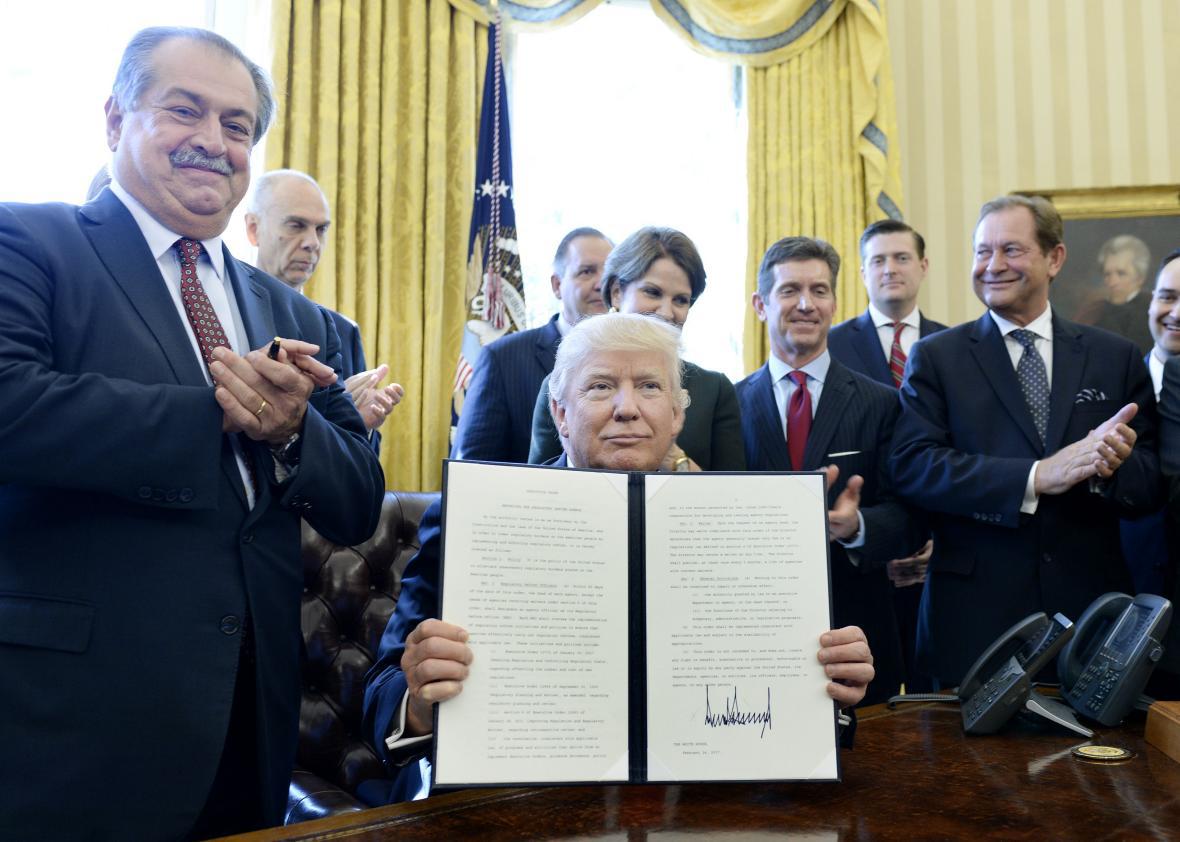President Trump is expected to sign an executive order Tuesday rolling back some of the Obama administration’s executive efforts to combat climate change. From CNN:
Tuesday’s order will initiate a review of the Clean Power Plan initiative, rescind the moratorium on coal mining on US federal lands and urge federal agencies to “identify all regulations, all rules, all policies … that serve as obstacles and impediments to American energy independence,” the official said.
Specifically, the order will rescind at least six Obama-era executive orders aimed at curbing climate change and regulating carbon emissions, including Obama’s November 2013 executive order instructing the federal government to prepare for the impact of climate change and the September 2016 presidential memorandum that outlined the “growing threat to national security” that climate change poses.
The order cannot be expected to meaningfully work toward some of the administration’s energy goals, including bringing back or increasing employment in the coal industry, as an energy economist told the New York Times on Monday:
The new order would mean that older coal plants that had been marked for closings would probably stay open, said Robert W. Godby, an energy economist at the University of Wyoming. That would extend the market demand for coal for up to a decade. But even so, “the mines that are staying open are using more mechanization,” he said. “They’re not hiring people.” “So even if we saw an increase in coal production, we could see a decrease in coal jobs,” he said.
The order is expected to come a day before the House Committee on Science, Space, and Technology is scheduled to hold a hearing on climate change featuring climate pundits with a history of both attacking each other and downplaying the effects of climate change. “The exchanges have the potential to become dramatic but will simply be a distraction,” the Washington Post’s Jason Samenow wrote last week. “The conflict may give off the unfortunate appearance that scientists don’t agree on anything and that climate change science is ‘not settled,’ despite the fact certain fundamentals are undisputed.”
